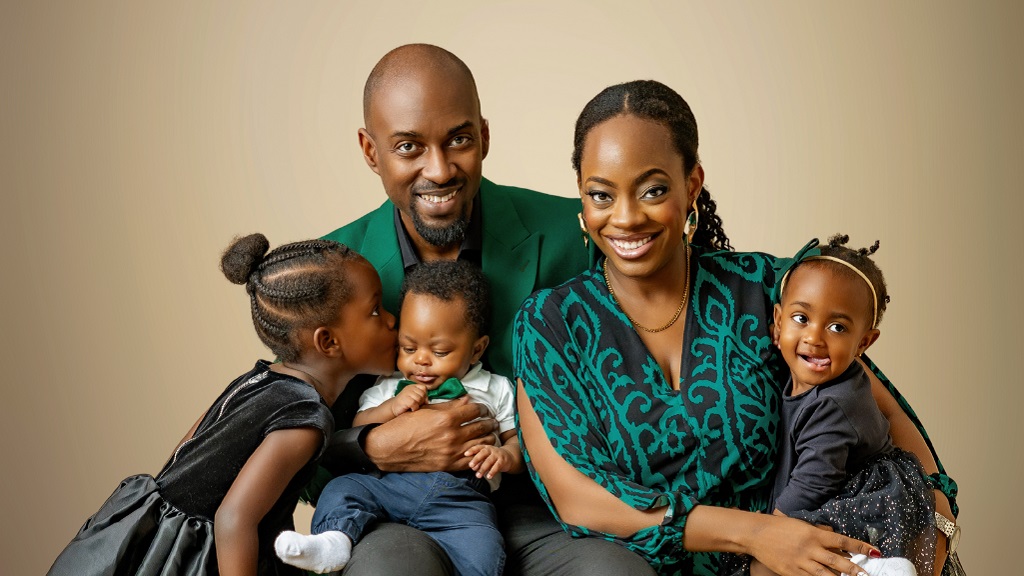
Growing up in a middle-class family often instills a certain set of financial habits and mindsets. While these habits can be helpful in some ways, they can also hold you back from achieving greater financial freedom and fulfillment.
Watch: How much does the average baby have in savings?
Read more: 4 genius things that all rich people do with Their Money
GOBankingRates spoke to five people who grew up in the middle class about what they learned and saw with money growing up. Here are some of the financial habits that each person has decided to change to achieve a more balanced and fulfilling financial life.
Rich people know the best money secrets. Learn how to copy them.
Enjoy life with priority now Instead of storing everything away
Saving for the future is important, but it’s also just as important to enjoy the present. Many middle-class individuals grow up thinking that every extra penny should go into savings or investments, sometimes at the expense of actual happiness and experiences.
“Growing up middle class made it hard for me to feel comfortable spending money, so when I became an adult, my default was to save, save, save and delay gratification,” says Zach Whelchel, Founder of MyBudget Coach.
“I’m 32 now and I have two children aged three and two and having children has helped me prioritize the present,” he added. “My wife and I stick to a budget that actually helps me spend more.”
Whelchel uses a zero-sum budget and says that since he knows all of his needs are covered by using the itemized budget, he now feels more comfortable spending money on “fun” things like travel, as well as putting aside $50 per month on one account. with the nickname “kids plus” he created to finance additional family entertainment.
Switched from a scarcity mindset to an abundance mindset
A scarcity mindset focuses on limitations and what you lack, leading to stress and anxiety. Edna Forero, a certified financial consultant and accredited financial advisor says that finances were messy growing up in her family, which eventually led her to develop a scarcity mindset.
“I often told myself that I would make sure the lights were on and that my fridge was always full,” says Forero. “Recently I decided to work on my scarcity mindset and learn how to approach life with abundance.”
One of Forero’s earliest memories was using a coin jar to collect money. As the jar filled, she realized that the money would eventually be taken or used for something else.
Forero shared that she has struggled to be able to maintain her savings in the past. But now, she has realized that it is okay to put money aside and she can let the money grow without fear of it being taken.
“This new mindset helped me pay off my student loans five years ago, and my husband and I are committed to saving and helping our four children graduate student loan debt free,” Forero said.
Stopped impulse buying and started saving automatically
Impulse buying can derail your financial goals, leading to unnecessary debt and financial stress. Shavon Roman, a personal finance expert and founder of Heal Plan Invest, says she would spend too much money on unnecessary impulse purchases, which are often fueled by emotions.
“If I needed an item, I would always buy it without thinking,” said Roman. “But now, I switched to postponing a purchase for 48 hours so I could make the choice with clarity.”
Roman says using the 48-hour rule also helped her start saving more of her hard-earned money. She now automatically saves 20% of her income using direct deposit from her paycheck before dealing with her other expenses and bills.
I did a 14-month backpacking trip at age 24
Sometimes, the best way to break stubborn money habits is to go completely in the opposite direction. For Brock Waterman, founder of Fire Travel Family, he was always used to saving money and spending only on the absolute necessities.
“I was trained to believe that I had to hide everything in order to retire in my sixties and finally enjoy life,” Waterman said. “It was as if the amount in my account was equal to my worth as a person.”
However, at the age of 24, Waterman quit his full-time job, sold most of his possessions (including his house) and went on a 14-month backpacking trip.
“It was one of the best decisions of my life,” Waterman said. “People say money equals freedom, but that’s only true if you’re willing to use some of your savings, because there’s no guarantee you’ll even make it to your typical retirement age.”
Waterman and his wife have since worked hard to achieve FIRE (Financial Independence Retire Early) while their children were young and have tried to enjoy life together with purposeful travel and activities.
Paying a professional instead of doing it yourself
While DIY projects can save money, they can also lead to costly mistakes and wasted time. Jim Wang, Founder of WalletHacks, grew up in a middle-class family that was super frugal and preferred to make everything rather than work.
Learn more: Check your $2 bills – they could be worth a ton
“My father had a white-collar job at a national laboratory, but we were always saving money to fly to Taiwan, so we often tried to save as much as possible,” Wang said. “However, as an adult, I’ve learned that sometimes it’s better to get a professional to do some things as it saves time and can provide better quality.”
More from GOBankingRates
This article originally appeared on GOBankingRates.com: I grew up middle class: Here’s how I broke my worst money habits as an adult
#Grew #Middle #Class #Heres #Broke #Worst #Money #Habits #Adult
Image Source : finance.yahoo.com
